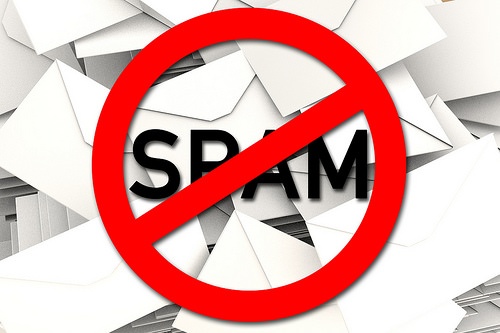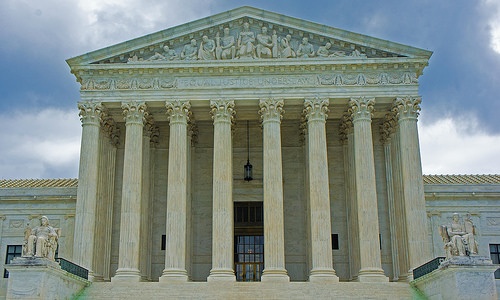By Ryan J. Black, Janine MacNeil, Sharon E. Groom, Lyndsay A. Wasser, Rohan Hill
Read MoreAudit, Compliance and Risk Blog
CASL Private Right of Action Delayed: Enforcement by CRTC Continues
Posted by STP Editorial Team on Tue, Aug 01, 2017
Tags: Business & Legal, International, Internet, Canadian, casl
Supreme Court Nominee’s Record Provides Insight into Views on Internet and Social Media Law
Posted by Michael Lambert on Thu, Mar 23, 2017
Legislatures and lower courts have traditionally been responsible for developing Internet law in the United States, but recently the U.S. Supreme Court has been asserting a more active role in shaping Internet law jurisprudence. In 2015, the Court considered whether a Facebook post constituted a “true threat” in Elonis v United States, and this summer, the Court will determine the constitutionality of a prohibition on former sex offenders using social media in Packingham v. North Carolina. Packingham, like other cases heard by the high court so far this term, will be resolved by eight justices.
This week, the potential ninth justice—Judge Neil Gorsuch—begins confirmation hearings before the U.S. Senate Judiciary Committee. As the Court takes a deeper look at cases concerning Internet and social media law, the seat vacated after the death of Justice Antonin Scalia could be instrumental in determining the future of Internet and social media law.
Gorsuch has the expected pedigree of a Supreme Court nominee: he is an appellate judge on the U.S. Court of Appeals for the Tenth Circuit, a former deputy associate attorney general with the U.S. Department of Justice, a former clerk for Justices Byron White and Anthony Kennedy, and a graduate of Harvard Law School. His views of Internet and social media law, however, are less certain, although his record on the Tenth Circuit bench provides a glimpse into where he may stand on Internet law issues.
In U.S. v. Ackerman, Gorsuch lived up to his reputation as a constitutional originalist, turning to the framers in determining that the Fourth Amendment protects emails from searches. Gorsuch wrote that the “warrantless opening and examination of private correspondence…seems pretty clearly to qualify as exactly the type of trespass to chattels that the framers sought to prevent when they adopted the Fourth Amendment.” Gorsuch added that “a more obvious analogy from principle to new technology is hard to imagine.”
In a second privacy case, U.S. v. Christie, Gorsuch concluded that although a warrant to search a computer for evidence relating to a crime was broad, it satisfied the Fourth Amendment’s particularity requirement.
In Mink v. Knox, a district attorney pursued criminal libel charges against a publisher of an online journal. Gorsuch wrote a concurring opinion, agreeing with the majority that the speech was protected as parody but cautioning the majority on the extent to which parodies may be safeguarded. Gorsuch opined that “the Supreme Court has yet to address how far the First Amendment goes in protecting parody. And reasonable minds can and do differ about the soundness of a rule that precludes private persons from recovering for reputational or emotional damage caused by parody about issues of private concern.”
Gorsuch also wrote a concurring opinion in Direct Marketing Association v. Brohl, upholding a Colorado law requiring online retailers without brick-and-mortar locations in the state to notify consumers of sales tax liability and report the information to the Colorado Department of Revenue.
In the copyright context, Gorsuch authored an opinion in Meshwerks, Inc. v. Toyota Motor Sales USA, Inc., determining that Meshwerks’ digital models of Toyota’s vehicles copying Toyota’s designs were not entitled to copyright protection. “While fully appreciating that digital media present new frontiers for copyrightable creative expression, in this particular case the uncontested facts reveal that Meshwerks’ models owe their designs and origins to Toyota and deliberately do not include anything original of their own; accordingly, we hold that Meshwerks’ models are not protected by copyright and affirm,” Gorsuch wrote.
In Doe v. Shurtleff, a case analogous to Packingham, Gorsuch joined a panel opinion in upholding the constitutionality of a Utah statute requiring convicted sex offenders to register all online usernames.
With the U.S. Supreme Court taking a more engaged role in Internet and social media law, the vote of a 49-year-old Justice Neil Gorsuch, if confirmed, could prove critical in shaping Internet law for years to come.
Specialty Technical Publishers (STP) recently published an entirely new chapter, available as a separate guide, on U.S. Social Media Law in its publication Internet Law: The Complete Guide, and provides a variety of single-law and multi-law services, intended to facilitate clients’ understanding of and compliance with requirements. These include:
Tags: Business & Legal, Internet
While the Internet creates great opportunities for commerce and for sharing information around the world, these blessings can be curses to the holders of trade secrets. The Internet poses a challenge for trade secret holders because it is an open network and it provides for immediate and widespread dissemination of information.
Read MoreTags: Business & Legal, Internet
The Internet continues to develop and evolve at lightning-fast speed, with new sites and platforms bursting into prominence as others lose their popularity and fade away. Meanwhile, the law, which is not known for its rapid acceptance of new ideas and technology, struggles to keep up, and so do those who must keep up with both the technological and legal developments.
Read MoreTags: Business & Legal, Employer Best Practices, Employee Rights, Internet
Buzz, buzz. Ring, ring. Your eyes are instantly open as the sharp sounds of your smartphone alarm ring in your ears. After reaching over to quell the noise, you jump out of bed, eager to begin your first day as director of marketing for Tech, Inc. Your workday begins with HR orientation. Without much explanation, your hiring manager drops reams of paperwork on your lap. One of the documents is titled “Tech, Inc. Social Media Policy,” while another is a form seeking your personal social media account usernames and passwords. After orientation, you are escorted to your new office, which, to your chagrin, is a small cubicle instead of a plush corner suite. You are assigned your first task: to launch an advertising campaign comparing Tech to rival company, Widget, Inc., along with a promotion in which customers pick three numbers for $2 for a chance to win Tech’s latest gadget. You proudly squeeze promotional information, a slight jab at Widget, and a photo of the prize in a 140-character tweet. After a long first day of work, you arrive at home and post to Facebook: “First day of work. :-) HR sucks. Cubicle is tiny. :-) Thinking about complaining. #newjob #TechInc #funemploymentover #realworld.”
Read MoreClean Water Act Rulemaking Violated Limits On Publicity And Propaganda
Posted by Jon Elliott on Wed, Feb 03, 2016
The rulemaking was highly publicized, including intense efforts by EPA and the Corps to solicit public involvement and comments. The agencies made unprecedented use of social media, including Twitter, Facebook, YouTube, and Thunderclap. These included encouragement to recipients to re-post the EPA information to others. When issuing the final rules, the agencies reported that they had conducted more than 400 public meetings and received more than one million public comments (many through social media).
These publicity efforts were also caught up in intense partisan political sparring between the Republican-led Congress against high profile (Democratic) Obama administration environmental initiatives. In part to restrict support building efforts, the 2014 federal budget prohibited expenditures “for publicity or propaganda purposes, and for the preparation, distribution or use of any kit, pamphlet, booklet, publication, radio, television, or film presentation designed to support or defeat legislation pending before the Congress, except in presentation to the Congress itself.” Republicans subsequently charged that the EPA and Corps efforts violated these restrictions, adding those charges to efforts to repeal the new rules. The agencies have defended themselves with claims that their efforts amounted to authorized use of publicity and media to develop or promote their own policies.
Senator James Inhofe, Chairman of the Committee on Environment and Public Works, requested the Government Accountability Office (GAO, an independent research and reporting entity under Congressional authority) to investigate this disputed issue, and offer a formal opinion whether agency efforts violated the budgetary restrictions. On December 14, GAO issued its formal reply concluding that some of EPA’s efforts had indeed violated the restrictions. Although EPA had never directly invited the public to comment to Congress or to lawmakers, some of EPA’s postings provided hyperlinks to advocacy group pages that did so; for example, EPA provided links to Natural Resources Defense Council (NRDC) and Surfrider Foundation webpages that took positions on the issues and encouraged viewers to provide responses to Congress. In addition, other advocates had reposted the EPA information along with their own messages including encouragement to political action. GAO concluded that these links did violate restrictions.
As of this writing, EPA had acknowledged but rejected GAO’s conclusions. However, practitioners are cautioning agencies and non-governmental advocates to review their use of hyperlinks to consider whether “secondhand” advocacy or informational campaigns are attributable to the original source. For EPA and other agencies these considerations will affect use of appropriated funds, and for others they will affect use of hyperlinks in political contexts.
Self-Assessment Checklist
Does my organization routinely provide information via social media?
If so, does this information include advocacy as well as factual statements or advertisements?
If so, does the organization have policies or approaches to inclusion of hyperlinks to third parties in its postings, and to inclusions of hyperlinks to its postings by third parties?
Where Can I Go For More Information? Read More
Tags: Environmental, EHS, EPA, Internet
Internet Law: Copyright and the Everchanging World of Digital Technology
Posted by Steve Imparl on Wed, Dec 03, 2014
Despite the pervasive Internet slogan that states, “Information wants to be free,” legal protection for copyrighted works online is thriving, even though the Internet may facilitate copying and access to information. Yet many people continue to misunderstand—or choose to ignore—copyright issues, especially in areas where recent technology is involved.
Tags: Corporate Governance, Business & Legal, Internet, Intellectual Property
Internet Law: New Top-level Domains and Trademark Law
Posted by STP Editorial Team on Wed, Sep 10, 2014
Since 1998, generic top-level domain names (gTLDs) have been managed by the Internet Corporation for Assigned Names and Numbers (ICANN). Some of the more well-known gTLDs include:
Tags: Corporate Governance, Business & Legal, Internet, Intellectual Property
In the run-up to the 2015 federal election, Canadian business owners may start getting unsolicited emails from political parties inviting them to fundraising dinners. The ones that come from the Conservative Party of Canada may be especially aggravating. After all, it was a Conservative government that brought in Canada’s Anti-Spam Legislation (CASL)—a law that is costing Canadian businesses millions to implement but that few believe will put any kind of dent in phishing scams and spam.
Tags: Corporate Governance, Business & Legal, Internet, Canadian
Internet Law: New Anti-Spam Legislation Won’t Stop Most Spam
Posted by Nelson Bennett on Fri, Jul 04, 2014
Tags: Corporate Governance, Business & Legal, Training, Internet









